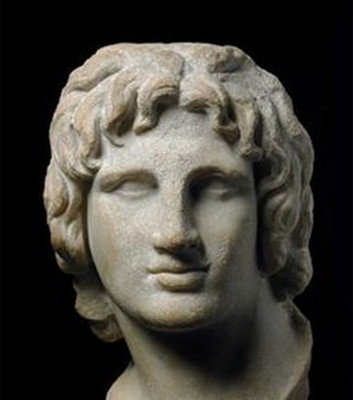And it worked for Lysimachus himself, up to a point.
而且,在一定程度上,這一做法對利西馬科斯自己也起了積極作用。
He's a mere historical footnote in comparison to Alexander-he didn't get an empire.
與亞歷山大的光輝相比,他只能算個歷史的注腳。
But he did get, and he hung on to, a kingdom.
他未能建立帝國,但畢竟實打實地擁有一個王國。
Twenty years after Alexander's death, it was clear that his empire would never be reconstituted, and for the next three hundred years the Middle East would be ruled by many cultured but competitive Greek-speaking kings and dynasties.
亞歷山大死后二十年,帝國已徹底分崩離析,無法重拾往日榮光。接下來的三百年內,中東地區由數位說希臘語的國王統治過,他們治下的王朝文明發達,但彼此競爭激烈。
In a later programme this week I'll be looking at probably the most famous monument of any of these Greek-speaking states, the Rosetta Stone, but in the next programme I'll be in India, where the great emperor Ashoka linked himself to a different kind of authority to strengthen his political position.
后文將要提到的羅塞塔石碑,便是所有希臘國王所遺留下來的最著名的紀念碑。但下一節我們要先談到印度。阿育王用了一種不同的統治方式來鞏固自己的政治地位:
Not the authority of a great warrior, but of one of the greatest of all religious teachers . . . the Buddha.
他所依賴的不是強大的武力,而是最偉大的宗教家釋迦牟尼。












